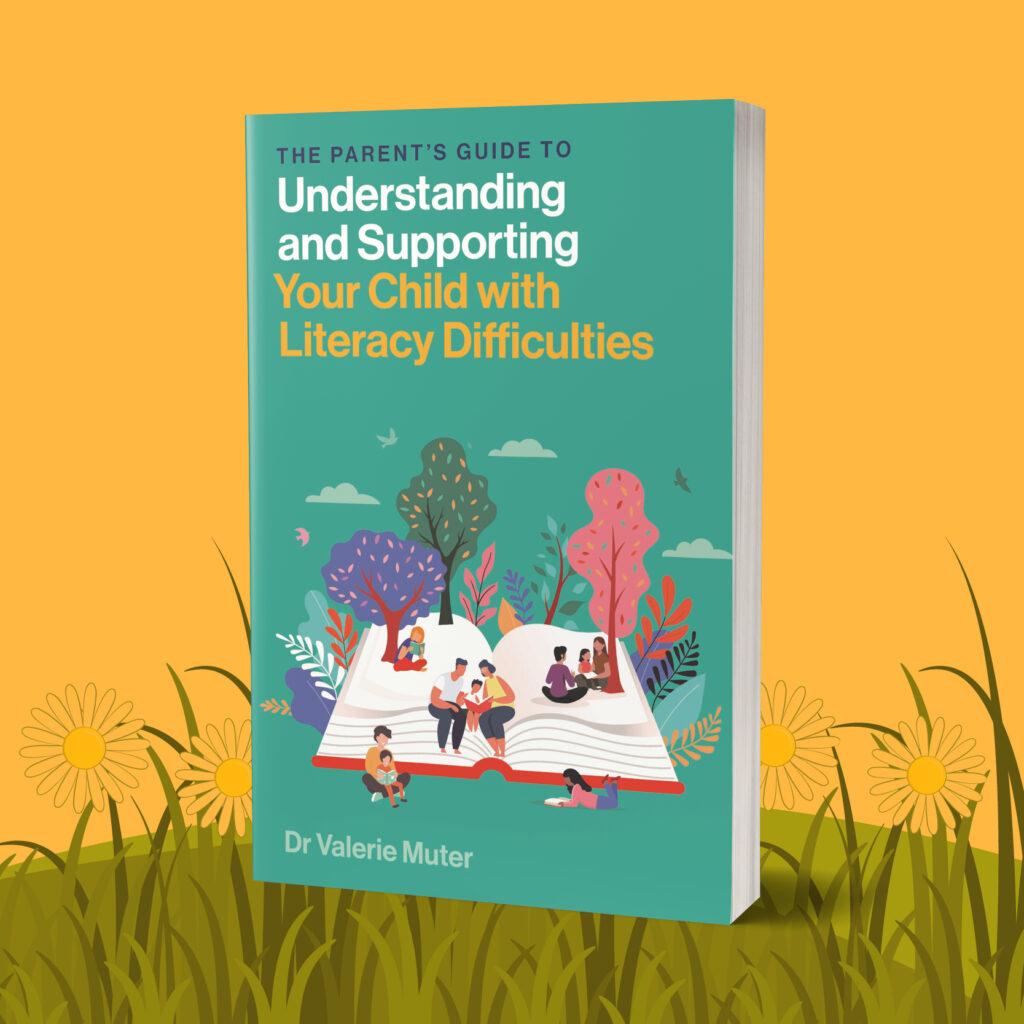
What Are The Signs That My Child Has Literacy Difficulties?
Q&A with author, Dr Valerie Muter.
As a practising psychologist of over 40 years, I have written this book for parents whose child is struggling to learn to read. As a parent you want to know why your child is finding reading hard and you want to understand how you can help and support them. Here are questions you will want to find the answers to:
What are the first signs my child might have difficulties with literacy?
How have you as a parent come to be aware that your child is finding it hard to learn to read? It may be that you yourself or other members of your family have struggled with reading, writing and spelling; literacy difficulties do tend to run in families. Or it could be that your child has been late to talk and you worry that that might affect their ability to learn to read and write. If you are from a family of poor readers or your child is a late talker, you will need to keep a close eye on them during their first year or two at school.
But how would I know my child is not progressing well?
You can answer this question through having an idea of what your child is expected to know by the time they have been at school for two years: they should know all the letters of the alphabet, they should have a ‘sight vocabulary’ of simple and common words and they should be able to phonically decode or ‘sound out’ two-, three- and four-letter printed words. If your child has not reached these milestones in reading by the end of Year 1, there is real cause for concern.
What do I do then?
Now you’ve spotted that your child appears to have reading difficulties, I tell you how to gather more information about what they can and can’t do. You are then ready to talk to their class teacher about your concerns. Together, you can work towards a partnership which means you monitor their progress at home and in the classroom and you can look at what extra help should be set in place to help them progress faster. If they still continue to struggle, it may be that a proper assessment should be done which can help identify and then target their particular literacy difficulties.
Do all children with literacy difficulties look the same or can they be very different from one another?
All children who have dyslexia (and who therefore struggle to read printed words) have difficulty making connections between sounds and letters. But in fact, not all dyslexic children look the same – some have mild difficulties others more severe difficulties, some have both reading and spelling weaknesses others just spelling difficulties, some concentrate well others don’t, some have handwriting difficulties others don’t, some are good at maths some aren’t. Why is this? It can be partly due to some children having more severe difficulties than others, but there is another reason too. A lot of children have additional difficulties beyond their dyslexia – some have problems with arithmetic, some have difficulties concentrating, some find it hard to use a pencil and struggle with handwriting and some have weaknesses in oral as well as written language.
What can I do at Home to Support my child’s Literacy Learning?
There is a lot you can do at home to support your child’s learning and progress, and to reinforce their literacy skills. You can practise their phonics, increase their reading speed, help them learn their key word spellings and their spelling rules, and develop their oral language and reading comprehension. And you can work on practical strategies to ‘get round’ their working memory difficulties. Many parents find their child who struggles with reading also lacks motivation and confidence; we will look at how best to boost these. I’ll also advise you on what you can do at home to encourage your child to read and how you can support good homework practices.
How can Understanding and Supporting Your Child with Literacy Difficulties help me?
This book will help you better understand what causes your child’s difficulties with reading, whether they are struggling to read the words on the page of their book or whether they have difficulty understanding what they read. I explain what a literacy difficulty looks like, and how it shows in the classroom, and at home too. I guide you as you talk to teachers about your concerns and help you work in partnership with them. If you feel your child needs to be assessed, I tell you how you can obtain such an assessment, what it looks like and what you can hope to get from it. Finally, and most importantly, I give you lots of ideas and tips about what you can do at home to support and help your child so they become a more skilled and confident learner.
Dr. Valerie Muter is a clinical and research psychologist with a special interest in children’s early cognitive development. Her most recently published book is The Parent’s Guide to Understanding and Supporting Your Child with Literacy Difficulties